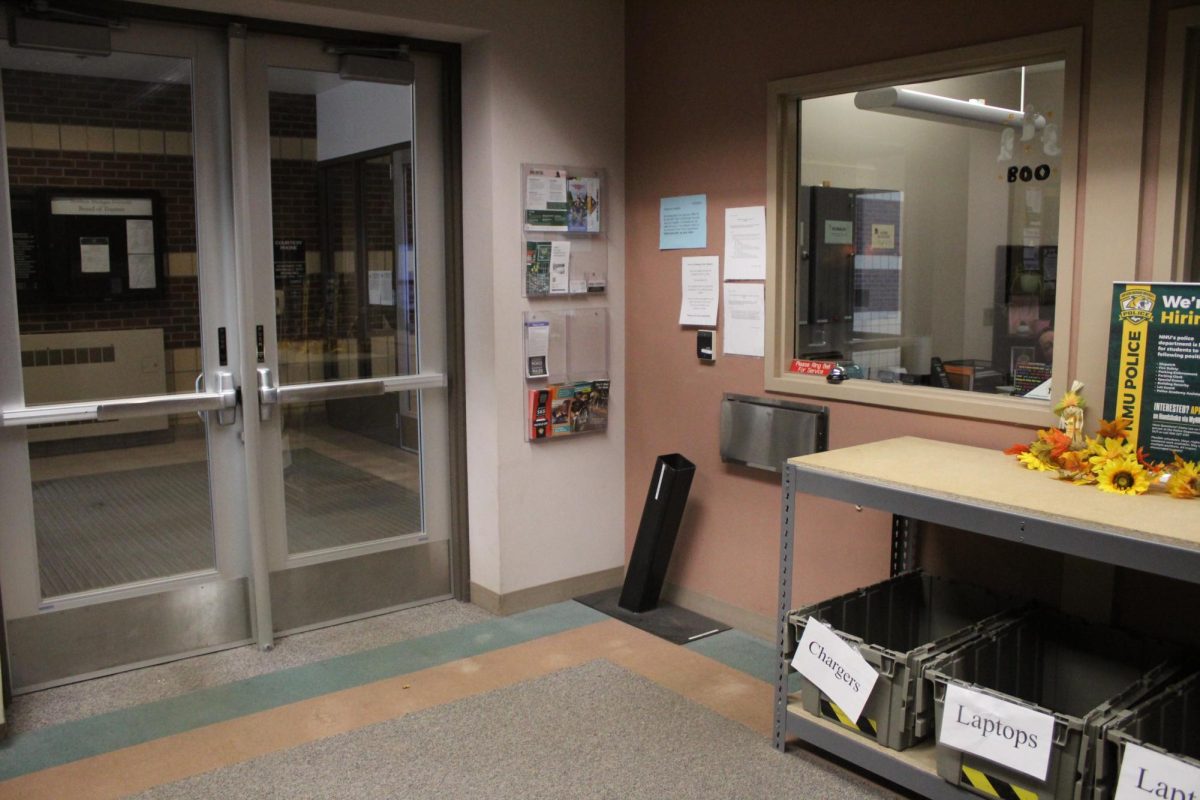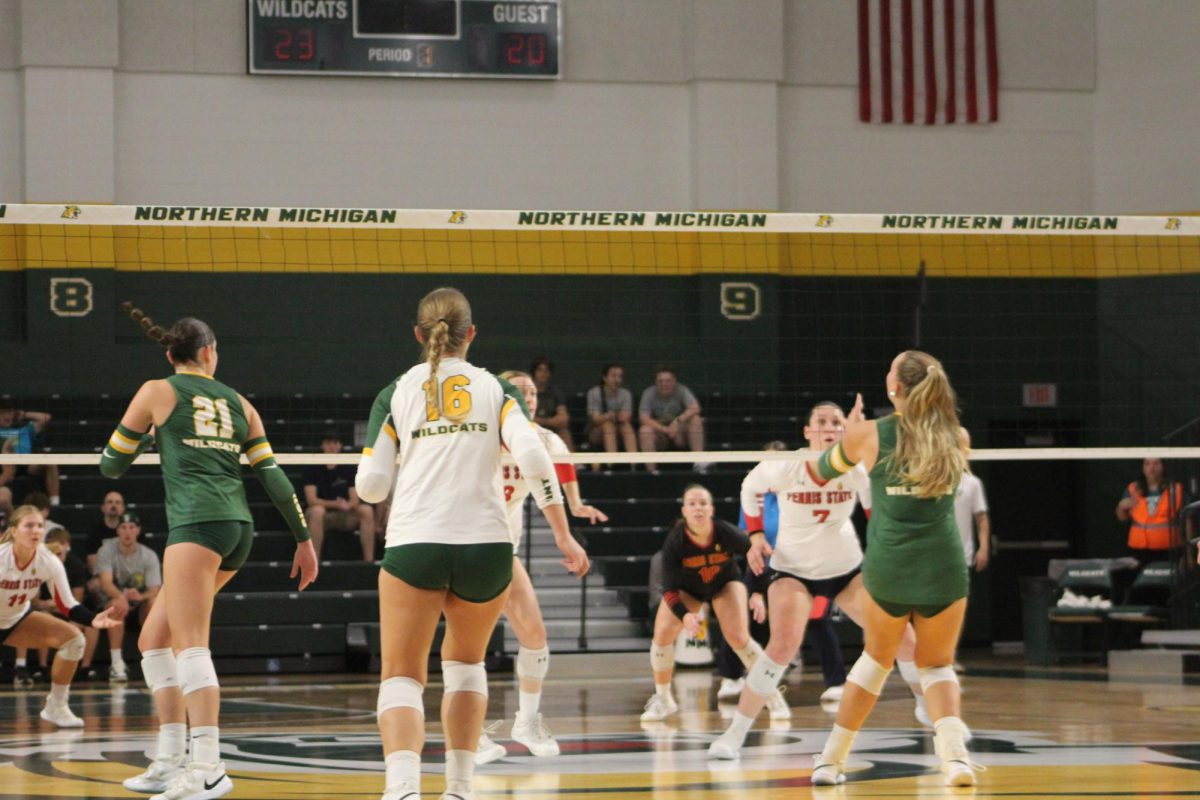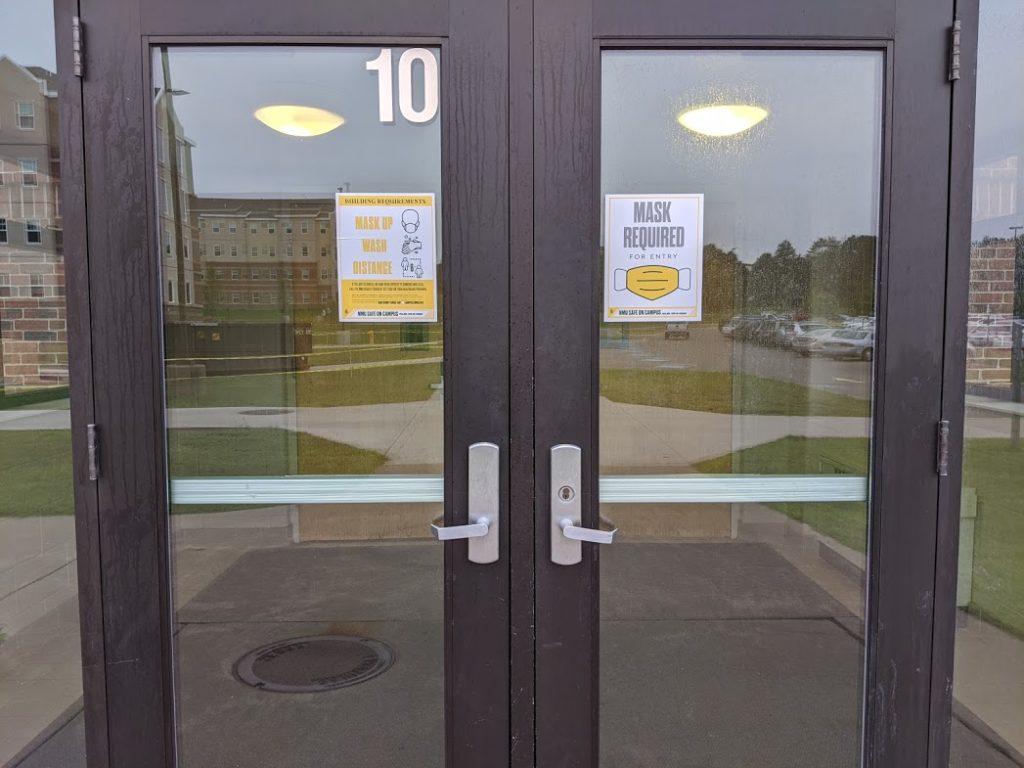From what I’ve been seeing, many people are not following the rules put in place by NMUs administration to protect us from COVID-19.
I’ve seen that people will have their masks off in the common areas in my residence hall. The maximum occupancy will often be surpassed in those places. I’ve seen more than one guest at a time come out of dorm rooms. All of these things are against the rules that have been put in place to keep the campus open.
I think it would be fair to say that most people here want to be up here. Why, then, are people just generally chill with breaking these rules? In trying to understand this, I’ve asked people about their thoughts, and I’ve come across three main rationalizations for not following the guidelines: The belief that COVID-19 isn’t real or masks don’t work, thinking freedom is more important than safety or believing that campus is going to shut down regardless of their actions.
Firstly, I’d like to address whether or not COVID-19 is real or not— It is.
In fact, according to statistics published in the medical research journal titled The BMJ in February, “COVID-19 has so far resulted in more deaths (1871) than SARS and MERS combined (1632).”
Anyone who denies the existence of this virus is a conspiracy theorist, and as far as I’m concerned, their opinions have as much relevance as those of flat-earthers.
Another sentiment I’ve heard to rationalize not following COVID-19 guidelines is that masks don’t work. That is a little more valid than denying the virus exists because the argument seems to be based on an absence of proof for the effectiveness of masks.
The thing is, according to Nature Medicine journal’s article “Respiratory virus shedding in exhaled breath and efficacy of face masks,” surgical masks do in fact reduce the spread from infected individuals, and it has been shown scientifically.
“Our results indicate that surgical face masks could prevent transmission of human coronaviruses and influenza viruses from symptomatic individuals,” according to Nature Medicine.
This is not to say anything about cloth masks, but it is a good indication that having a barrier between your face and others has a positive impact.
However, maybe the concern is regarding why healthy individuals need to wear masks or whether cloth masks, rather than surgical masks, help. I’ve often heard something along the lines of, “Country x doesn’t require masks because there is no evidence they work,” which is technically true, according to a study completed by published by The Lancet, a scientific journal.
“There is an essential distinction between absence of evidence and evidence of absence,” the Lancet article stated.
However, if we can’t prove that cloth masks work yet, but we can reasonably hypothesize that they work, then shouldn’t we wear them when doing so could save lives?
Additionally, the country Singapore as of May 1, 2020, didn’t require masks mainly due to shortages or because they thought people would use masks improperly and would assume they give full protection, according to “Importance of Face Masks for COVID-19: A Call for Effective Public Education” published by Oxford Academic.
On whether face masks cause harm, the research is not there for that. However, the current consensus among experts based on preliminary evidence is that face masks should be worn, according to the Centers for Disease Control and Prevention’s article “About Masks.”
Whether freedom is more important than protecting ourselves from COVID-19 is a rather interesting ethical debate. Anytime you interact with another person, there is a risk they could infect you with the virus or vice versa. That being true, the most logical way to stop COVID-19 in the absence of a cure would be to completely lock down every person for a month. With how resistant to lockdown people were in the past, that is unlikely to happen.
Given the reality we live in, we must ask ourselves how much we are willing to risk the safety of others for our own happiness. I think this is something many people haven’t fully been contemplating. Regardless of the health concerns and risk of death, if you get infected then all your friends get put in isolation too. To fully contemplate it would mean stopping to ask yourself at what point does the risk outweigh the normalcy. I think it is important every one of us seriously consider what consequences our actions will have on others.
A very common sentiment I’ve heard around campus is that on-campus activities are going to shut down regardless of the speaker’s personal actions. Someone in my chemistry lab said he thought campus would shut down and nearly every person in the class nodded and said they agreed. This is a nihilistic way of looking at things. Which I can almost dig but there is just one problem I have with this. The campus doesn’t have to shut down, it isn’t death or taxes. The rules are there to allow the campus to be kept open, this is already a compromise.
Another thing we must ask is whether we want to have a couple of weeks where we live acting as if everything is fine or have a whole semester where we have to adapt to the new practices and guidelines. When we consider this and what impact our actions have on others I hope it makes you consider that we as NMU students maybe should do a better job following the rules.























